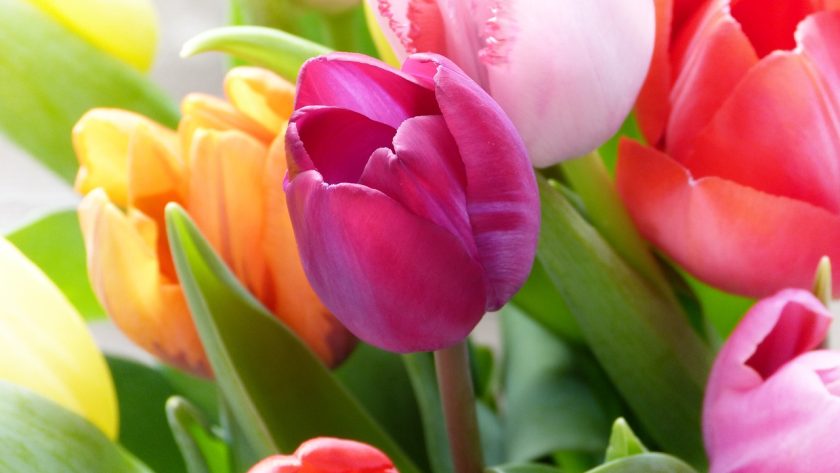In the vast realm of consciousness, thoughts blossom, bloom, and flourish much like plants in a garden. Our thoughts can be cultivated and nurtured in appropriate conditions that stimulate growth. Our thoughts require compassion and care, and many similarities can be drawn between thoughts and plants. Hopefully, this piece of writing will illuminate the significance of tending to our mental garden.
Thoughts are actualised from a single idea or inspiration in the same way that plants sprout from tiny seeds. They may germinate because of external stimuli or even from within our minds. In the same way that seeds hold the potential to grow, habitual and positive thoughts develop neural pathways that empower and enhance a sense of agency when the power of our thoughts is understood, prioritized, and valued.
Our thoughts require nourishment to flourish, and they receive what they need through the illumination, enlightenment, and affirmation of the Holy Words of God. We illumine our hearts and our minds when we begin our day with the practice of prayer, meditation, and positive affirmation. We strengthen our mind’s roots through these practices when we intentionally “ground” through the habit of gratitude throughout our day, remaining ever mindful of our blessings and God-given bounties. We feed and replenish our minds with knowledge, new experiences and uplifting insights which foster healthy and elevated thoughts. Engaging in activities like reading, learning, immersing ourselves in meaningful engagements and surrounding ourselves with aligned companions provide the much-needed nourishment for our thoughts to thrive.
Negative thoughts can similarly impede our mental well-being to how weeds hinder the growth of plants. When we saturate our mind with harmful thoughts of fear, doubt, disunity, and hopelessness we allow our internal saboteurs to hijack our mental programming that ultimately leads to a self-defeated mentality and feelings of disempowerment. It is crucial to identify and uproot these detrimental thoughts and replace them with more positive, constructive insights and ideas. This can be quite a daunting process but ploughing the soil of our mind grants us the blessing to renew our state of being and embody a consciousness of transformation. Through breathwork, meditation, emotional regulation, self-soothing and compassion, we gain the benefits of a restored heart and mind that can contribute to the betterment of humanity. Cultivating mindfulness and practising self-reflection can assist us in recognizing and eliminating negative thought patterns, allowing a space for more fruitful ideas to take root. When we plant good thoughts in our minds and foster good feelings in our hearts, we shift our physiological state, and we step into a new reality of harmony, serenity, unity, flexibility and love.
In the same way that a gardener prunes the plants to promote healthy growth, we are encouraged to also prune our thoughts. This means that we need to critically evaluate our ideals and perspectives, eliminating those that no longer serve us or others. By consciously shaping our thoughts, we can cultivate a more positive, constructive mindset that yields harvests of God’s grace and favour. When we align our intentions and conduct with doing what most pleases God, we activate a spiritual portal of bounties and blessings that continually flow into our lives. When we shift our consciousness and exert efforts to mirror the virtues and values that God desires us to cultivate within ourselves, we receive heavenly confirmations that reinforce this truth: God rewards those who master themselves. He rewards those who endure the fire of tribulation with radiant acquiescence and produce a soul of honey and gold.
Plants reproduce by spreading seeds, and likewise, our thoughts have the power to inspire and uplift others. Sharing our ideas, insights, and knowledge can contribute to the growth of collective wisdom and foster a sense of connection. When we interact with those who are seemingly different to us, we implement a process of cross-pollination that fosters the principle of unity in diversity. When we practice attitudes of unity, we come to realize that despite our different circumstances and narratives, we are all created in the image of God and hold the power to sow seeds of inspiration and fellowship. When we do this, we contribute to a more vibrant and spiritually stimulating society.
`Abdu’l-Bahá shares this beautiful quote in the “Promulgation of Universal Peace”:
“Holy souls are like soil which has been ploughed and tilled with much earnest labour, the thorns and thistles cast aside and all weeds uprooted. Such soil is most fruitful, and the harvest from it will prove full and plenteous. In this same way, man must free himself from the weeds of ignorance, thorns of superstitions and thistles of imitations that he may discover reality in the harvests of true knowledge.” `Abdu’l-Bahá: Promulgation of Universal Peace, Pages: 293-294
The analogy between thoughts and plants offers a captivating perspective on the nature of our consciousness. Just as a well-tended garden yields beautiful and bountiful fruits, nurturing our thoughts can lead to a flourishing mind. By recognizing the parallels between these two realms, we can appreciate the importance of cultivating positive and nourishing thoughts, ultimately enhancing our overall well-being. Our thoughts influence the conditions of our hearts, and our sincerity and purity of motive facilitate the modification of our behaviour. When we commit ourselves to adopting a humble posture of learning instead of parading our ego and claiming to know it all, we create space for true knowledge to flow through us and supersede the accumulated man-made limitations.
Take note; “Destruction is loud. Creation is quiet. This is the power of silence”.
May we continue in all our endeavours to strive with sincere resolve to plant gardens of grace within our hearts and minds so that all may benefit from the fruits of our spirit.





